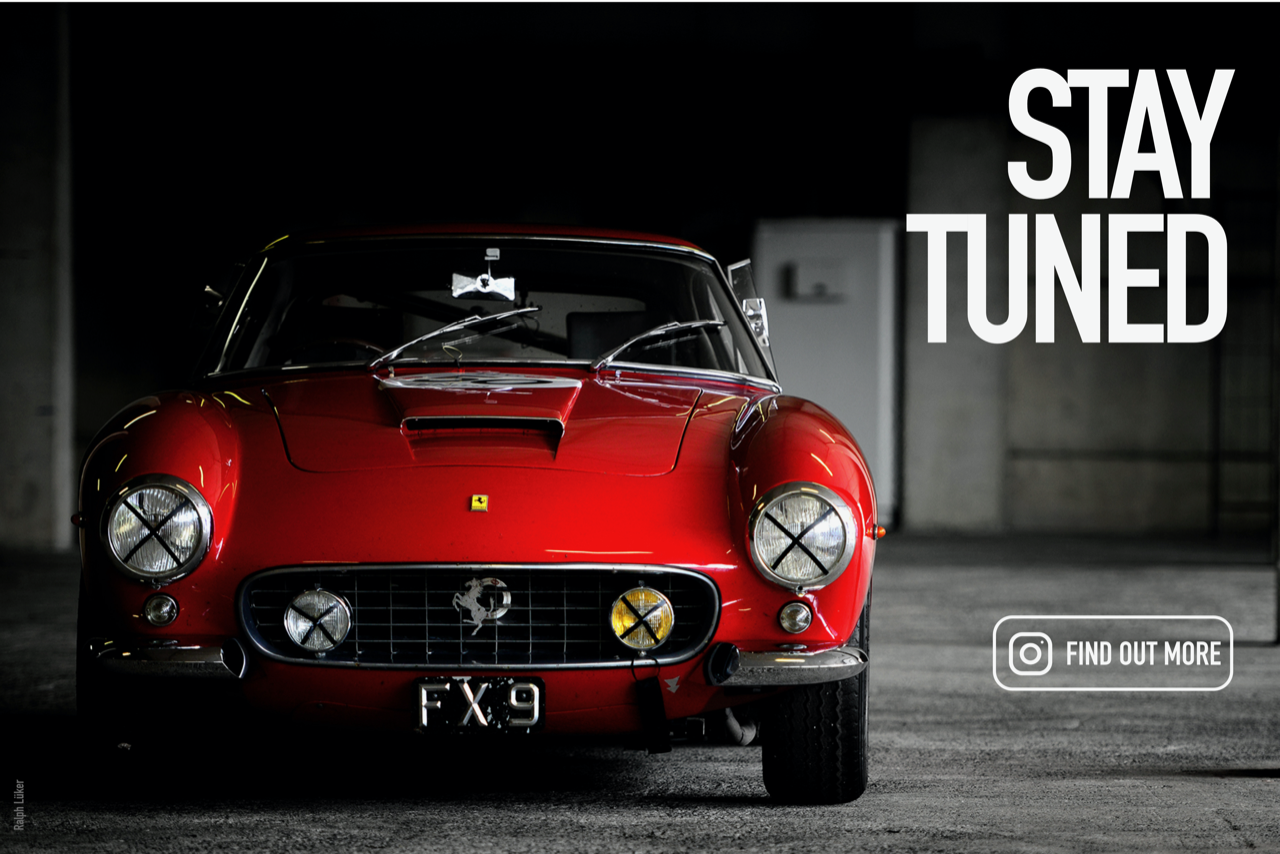From Challenge Stradale to 488 Pista, Ferrari’s special-series V8s join the dots between mid-engined sports cars and motorsport.
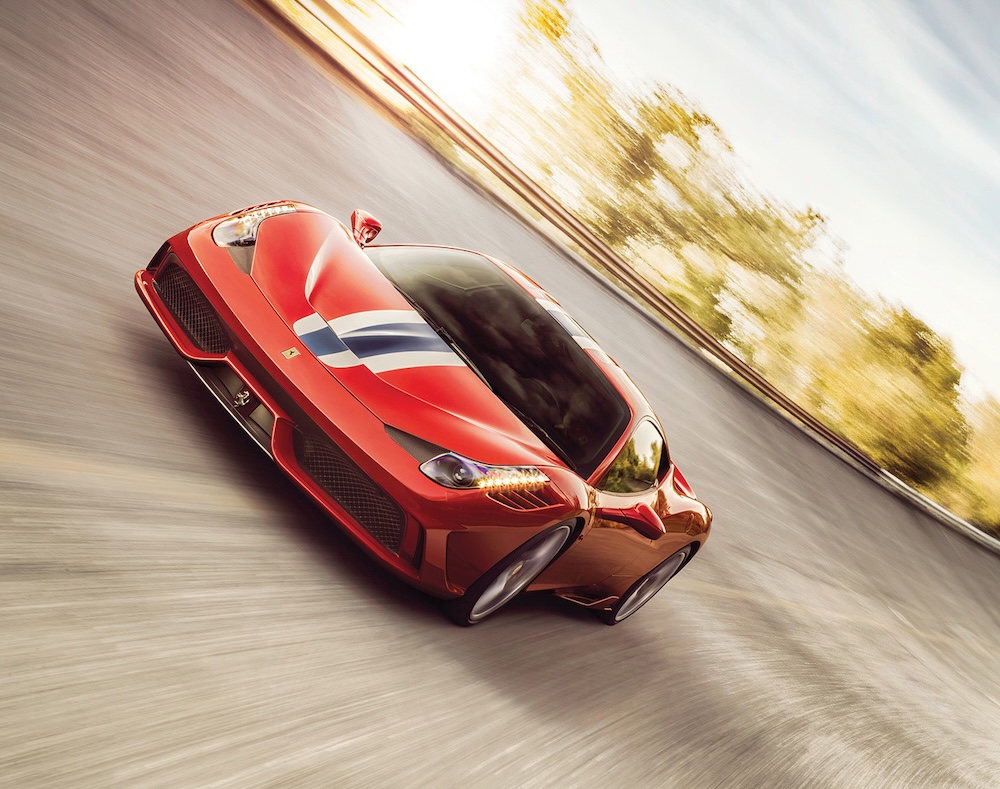
Ferrari has a storied history of evolving its road-legal sports cars into fully fledged racers, but in 2003 it blurred the distinction with the Challenge Stradale – a model that distilled the purity of racing GT models to the road.
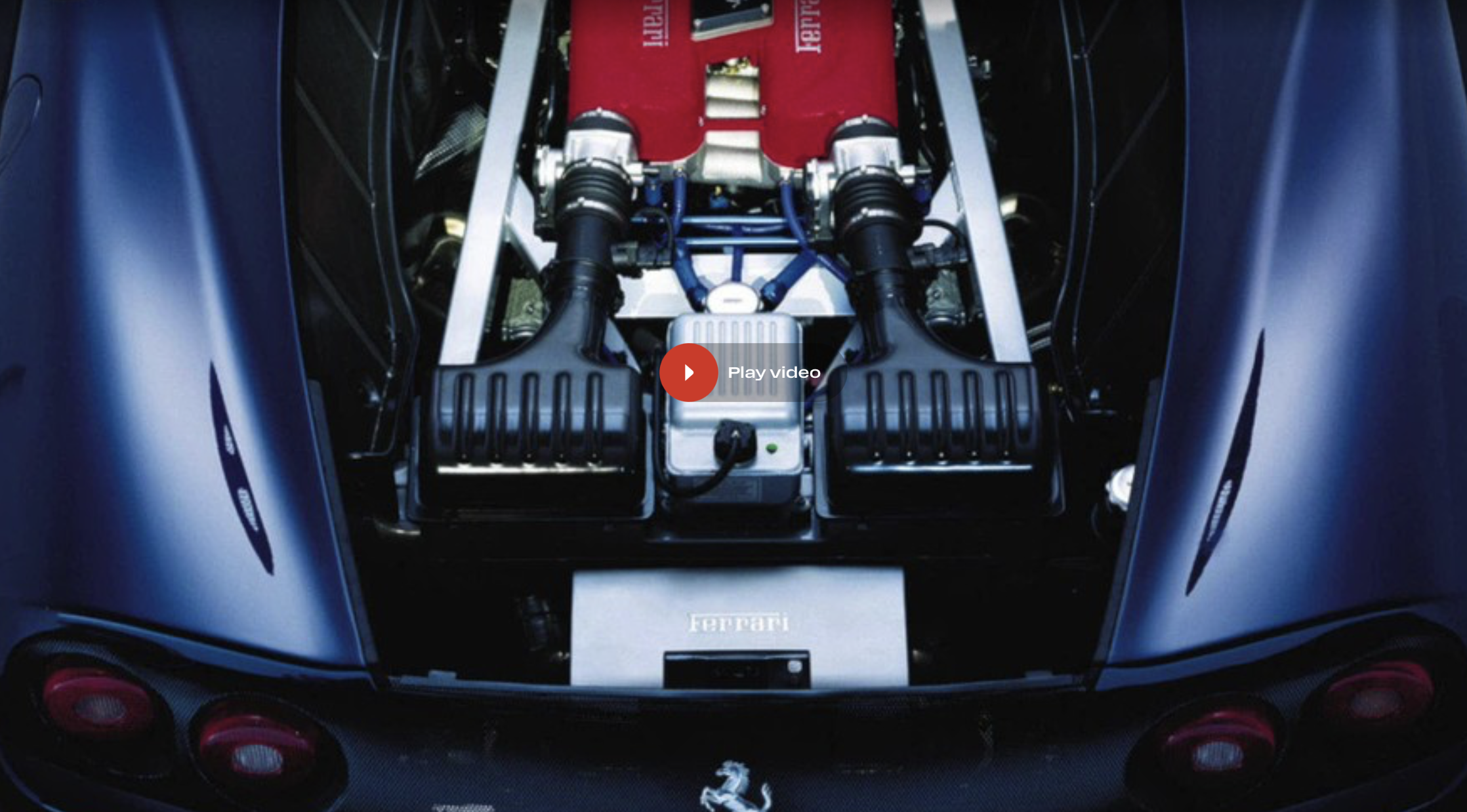
It also began a dynasty of special-series V8s that stretch through to the modern day. Lighter, faster, sharper and fizzing with motorsport excitement, these models represent some of the most driver-focused Ferraris of all time. Read on to explore their evolution.
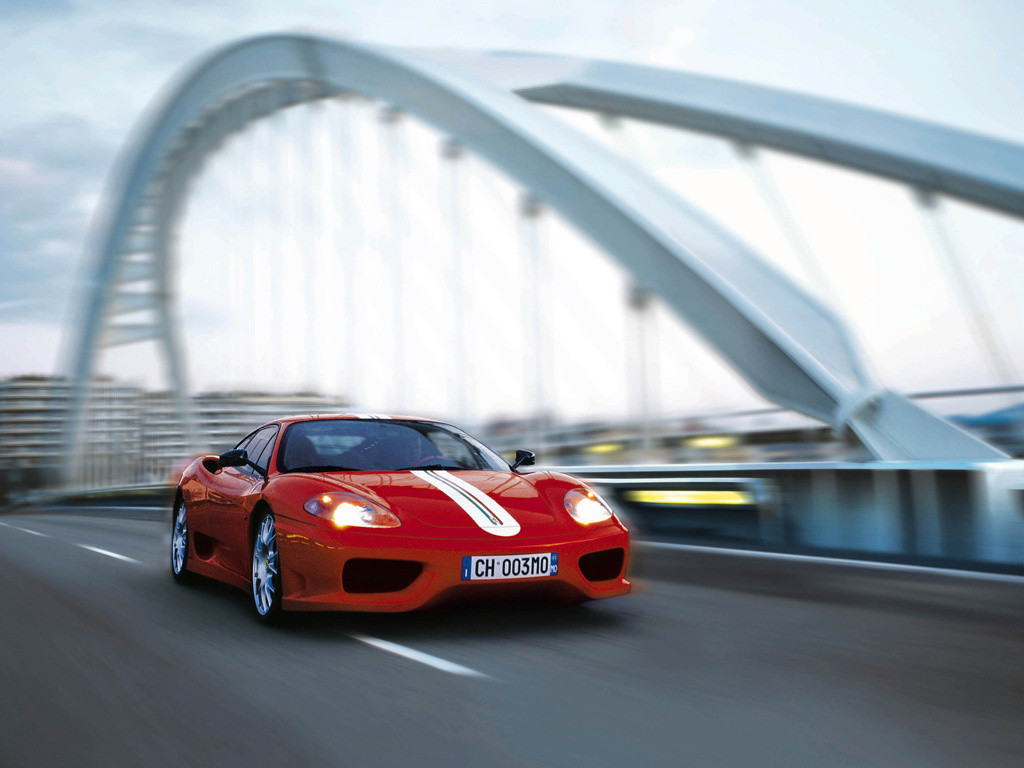
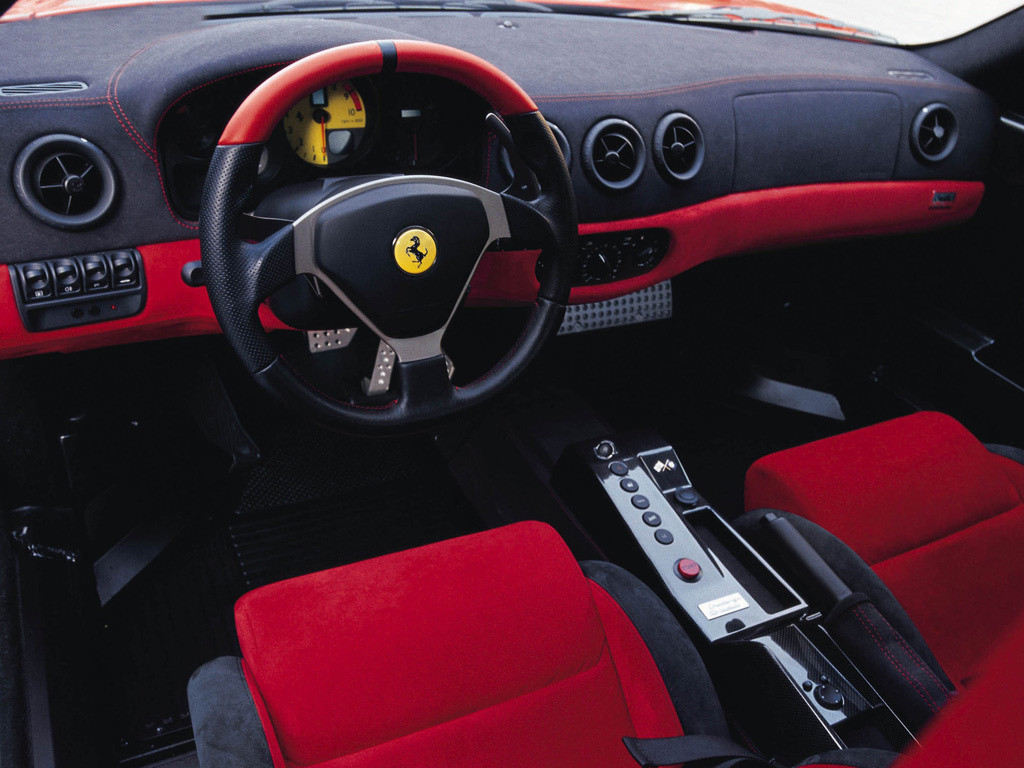
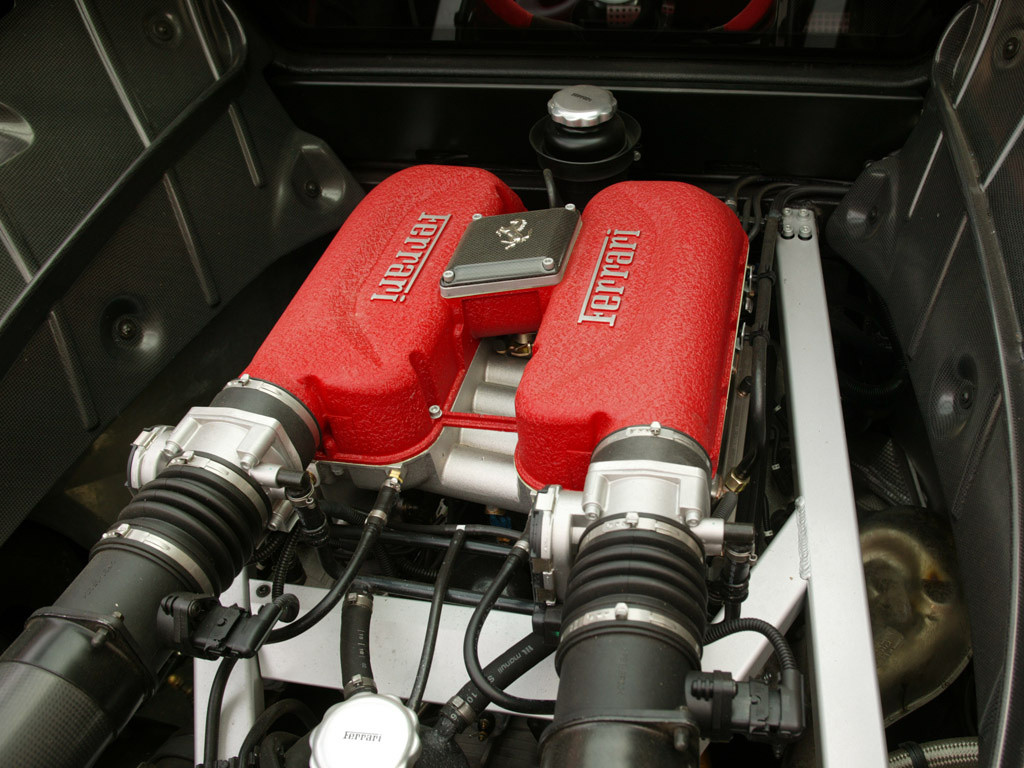
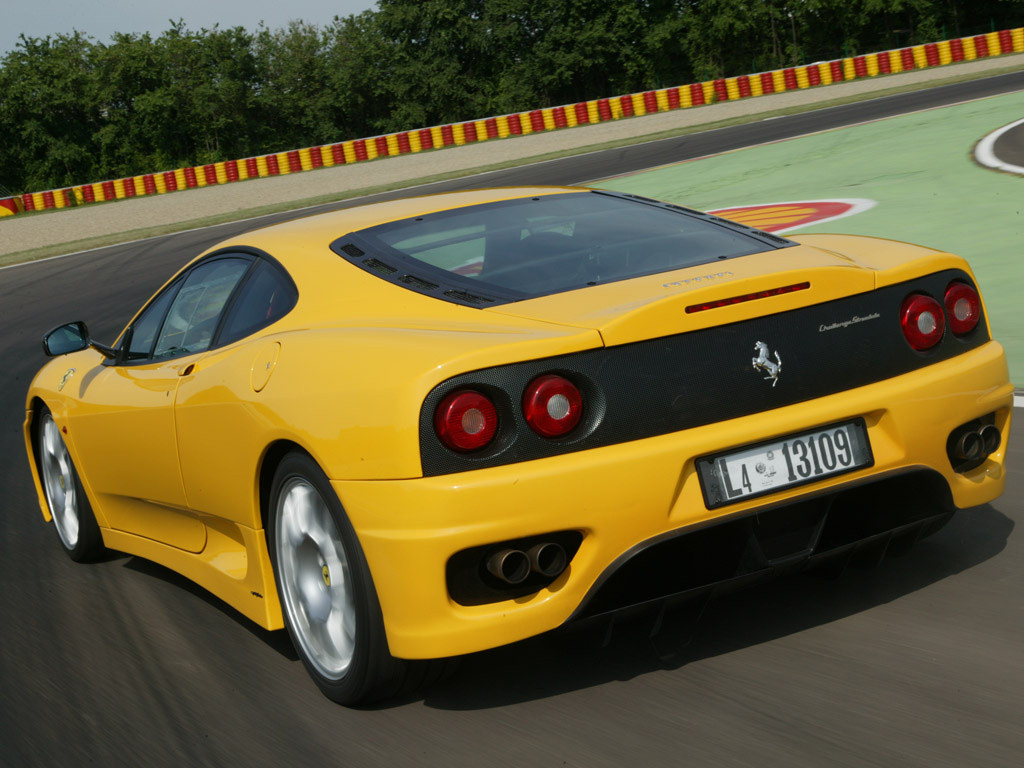
Some 110kg lighter than the 360 Modena, the Challenge Stradale was every inch the road-legal racing car
2003: Challenge Stradale
The Challenge Stradale was first in the motorsport-inspired V8 series, bridging the gap between the 360 Modena and racing models in the Ferrari Challenge and FIA GT series. It also captured some of the raw driver appeal of another mid-engined V8 – the F40 that launched some 16 years earlier.
Its 3.6-litre V8 combined with the faster shifts of the F1-style paddleshift gearbox and a performance increase to 425 cv. By the standards of today’s turbocharged machines this represented a relatively small 25 cv gain compared with the 360 Modena, but the combined effects of a chassis lowered 15mm on titanium springs, carbon-ceramic Brembo brakes and downforce increased by 50 per cent – all without resorting to extravagant wings – certainly made it count.
Perhaps most striking of all was the overall weight reduction of 110kg – an extraordinary figure for a road car and one that reveals just how uncompromisingly focused the Challenge Stradale truly was. Everything that wasn’t necessary was removed, and even race-style Lexan windows were offered to clients craving the full road-legal racing car experience.
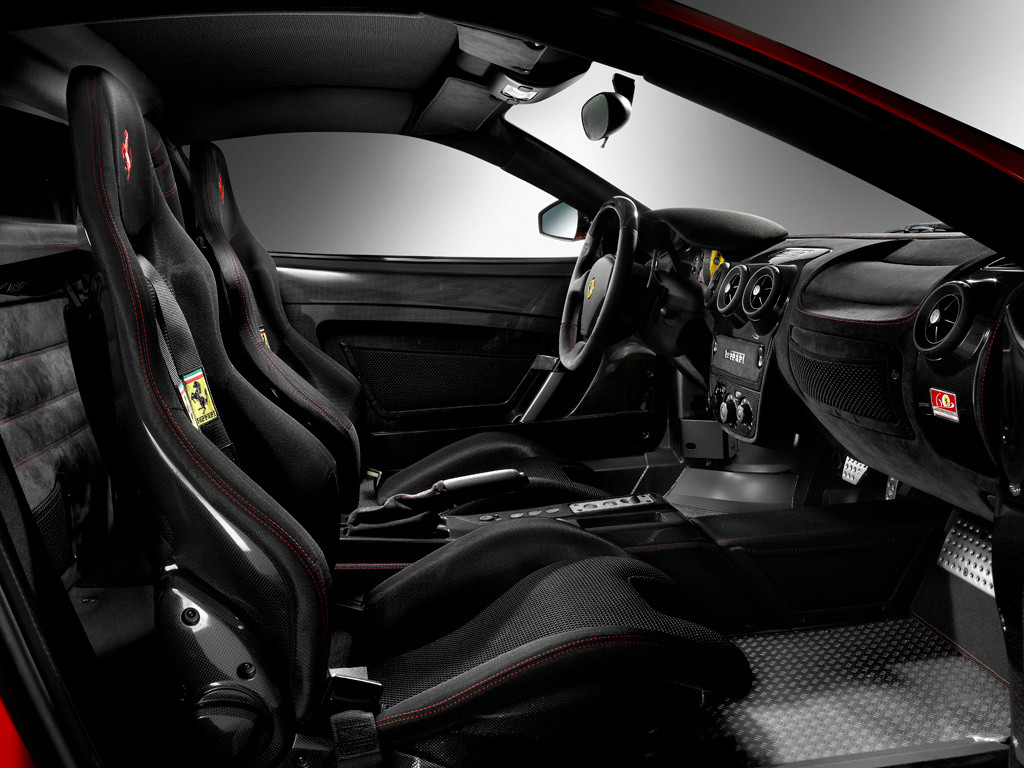
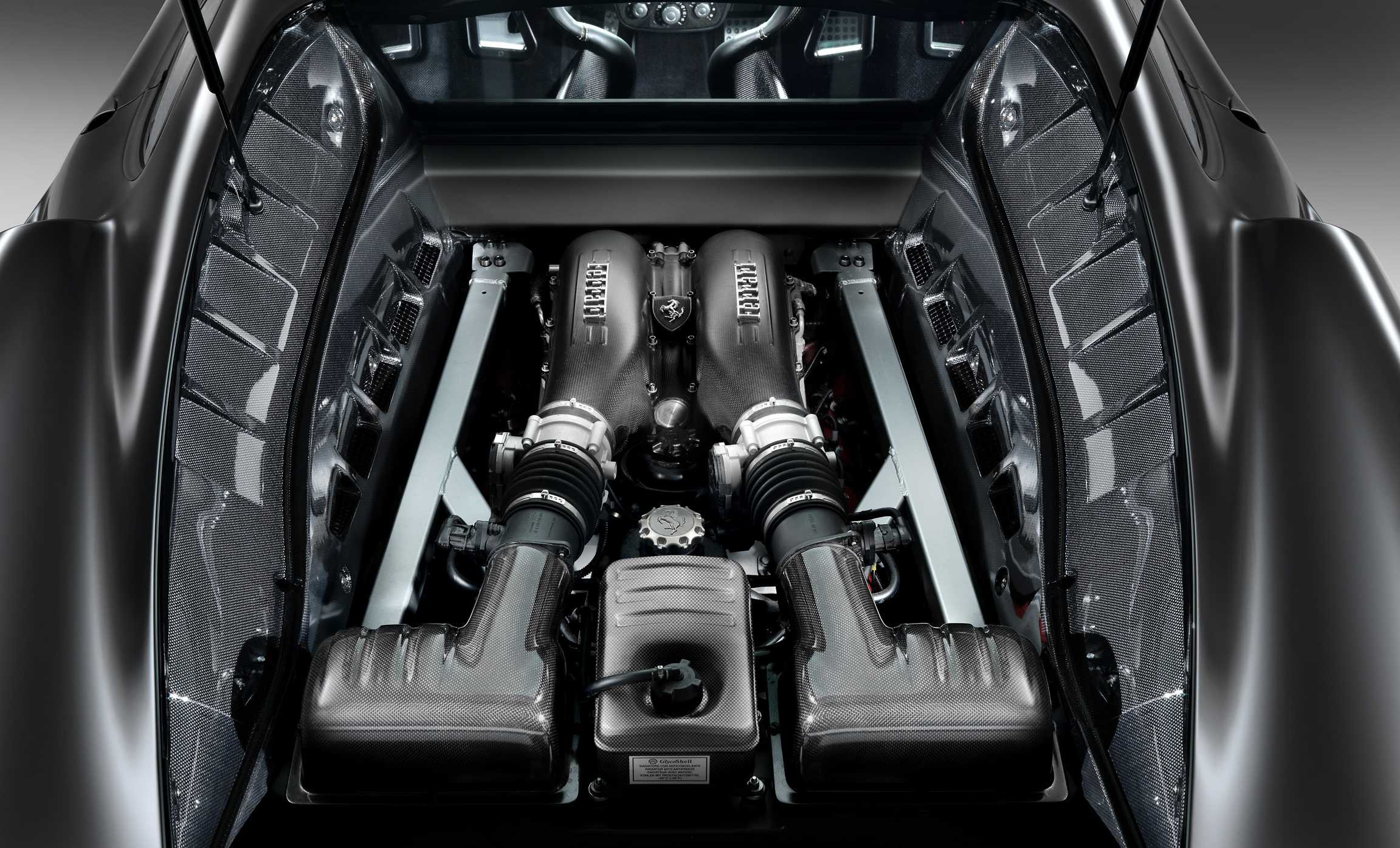
The 430 Scuderia’s compliant chassis is testament to its development on the Nürburgring
2007: 430 Scuderia
If the 430 Scuderia’s name hinted at a Formula One connection, the reality certainly didn’t disappoint – seven-time world champion Michael Schumacher honed the new model on the Nürburgring Nordschleife.
Just like its predecessor, the influence of F430 racing models defined the driving experience. Performance from the 4.3-litre naturally aspirated V8 rose 20 cv to 510 cv, the F1 Superfast 2 gearbox became even faster and a minimalist interior featured lightweight technical fabrics, Alcantara and carbonfibre.
The chassis was again lowered 15mm but the 430 Scuderia’s adaptive dampers were now surprisingly compliant for such a track-focused machine – testament to all that Schumacher development time on the Nordschleife.
Electronic systems such as the E-Diff, racing manettino and F1-Trac traction control system further enhanced useability.
True, some of the raw edges had been rounded off compared with the Challenge Stradale, but the 430 Scuderia was simply the more capable car, its compliance making it both more comfortable and better able to deploy such prodigious performance on the trickiest surfaces.
This was also the first model to be joined by an open model, the Scuderia Spider 16M, whose name celebrated another Formula One connection – Ferrari’s 16 Constructors’ titles.
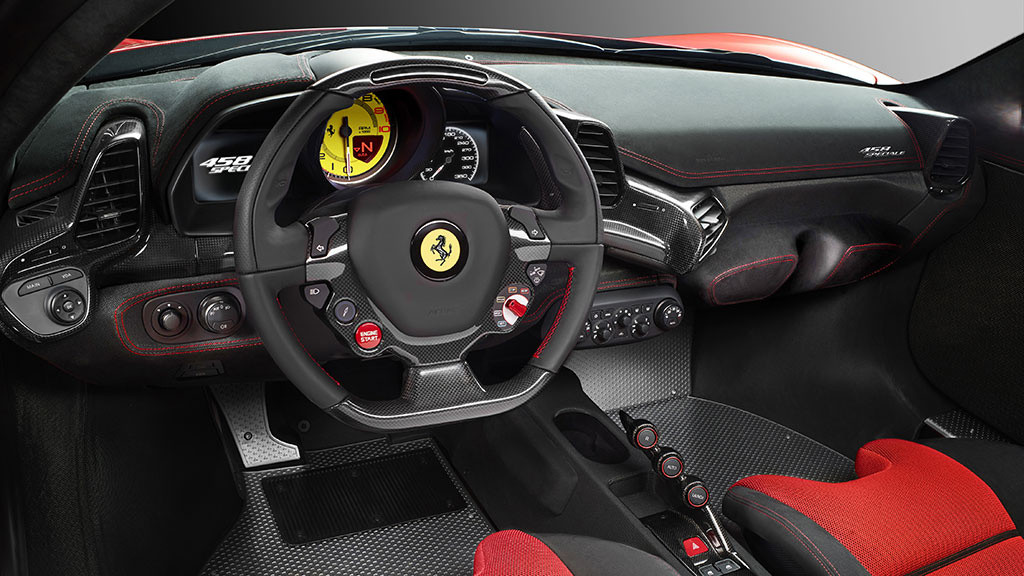
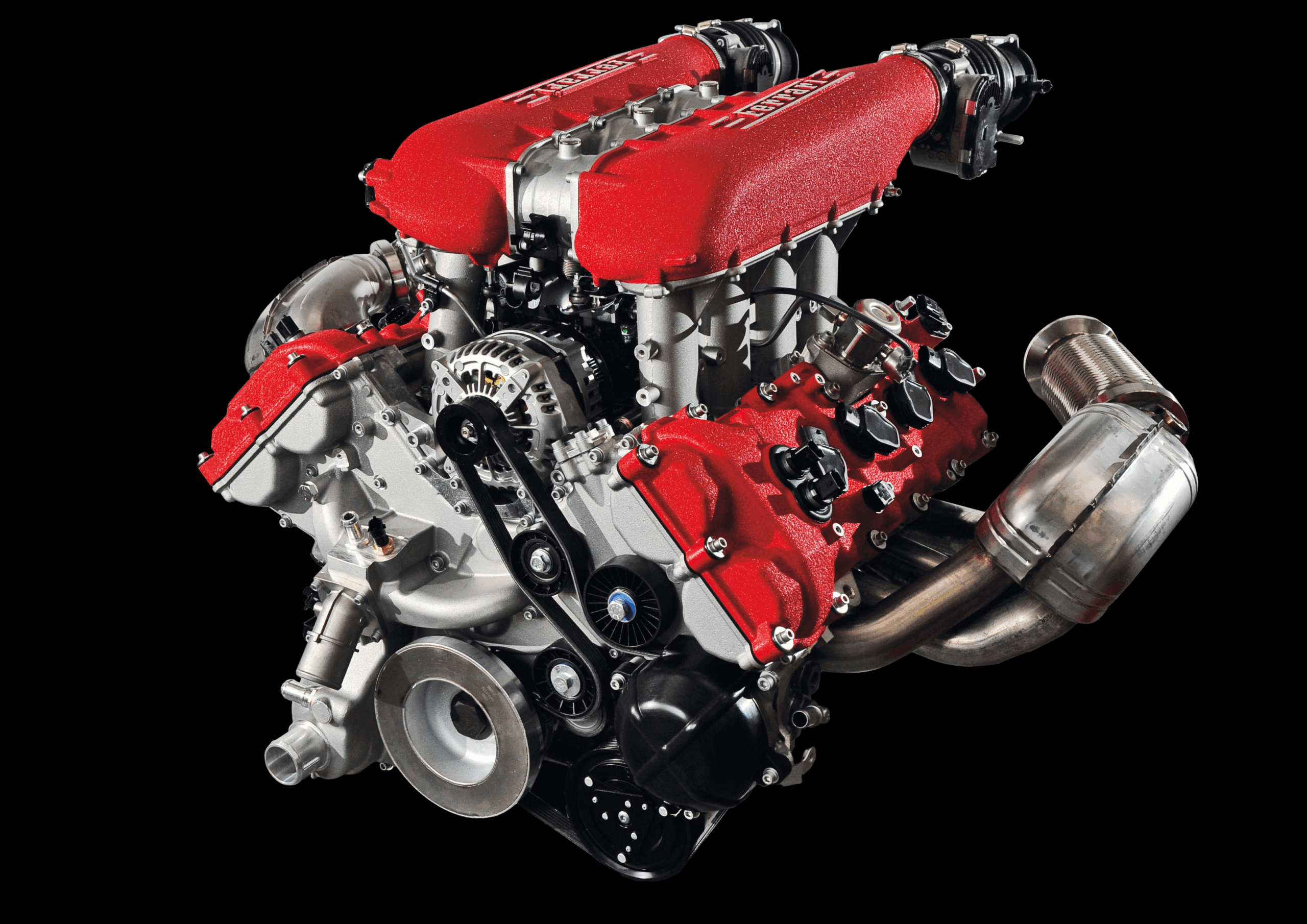
With 605 cv at 9000rpm, the 458 Speciale represented the ultimate evolution of Ferrari’s naturally aspirated V8
2013: 458 Speciale
Development engineers for the 458 Speciale faced no easy task, given the acclaimed 458 Italia provided its foundations and benefited from a more powerful 4.5-litre V8 engine, even faster F1 dual-clutch gearbox and yet more responsive steering.
The usual formula of less weight, an uprated chassis and increased performance once again applied, all of it leaning on lessons learned on the 458 Italia GT and GT3 racecars, only now active aerodynamics and a new chassis technology called Side Slip Angle Control (SSC) joined the fray. Together they combined to make the Speciale both more stable and more exploitable at the limit.
The Speciale’s flat-plane crank V8 engine reached the high watermark of development, stretching to 605 cv at an extraordinary 9000rpm – a fitting send-off for the serial Best Performance Engine award winner. Upshifts, too, were now 20 per cent faster, and downshifts swifter by some 44 per cent for an even more intense experience.
A record 1min 23.5sec lap time at Fiorano soon followed.
The 458 Speciale A debuted for 2008, introducing a retractable hardtop to the special-series line-up for the first time. But whether coupe or spider, the Speciale delivered a bewitching combination of technological mastery and raw feel.
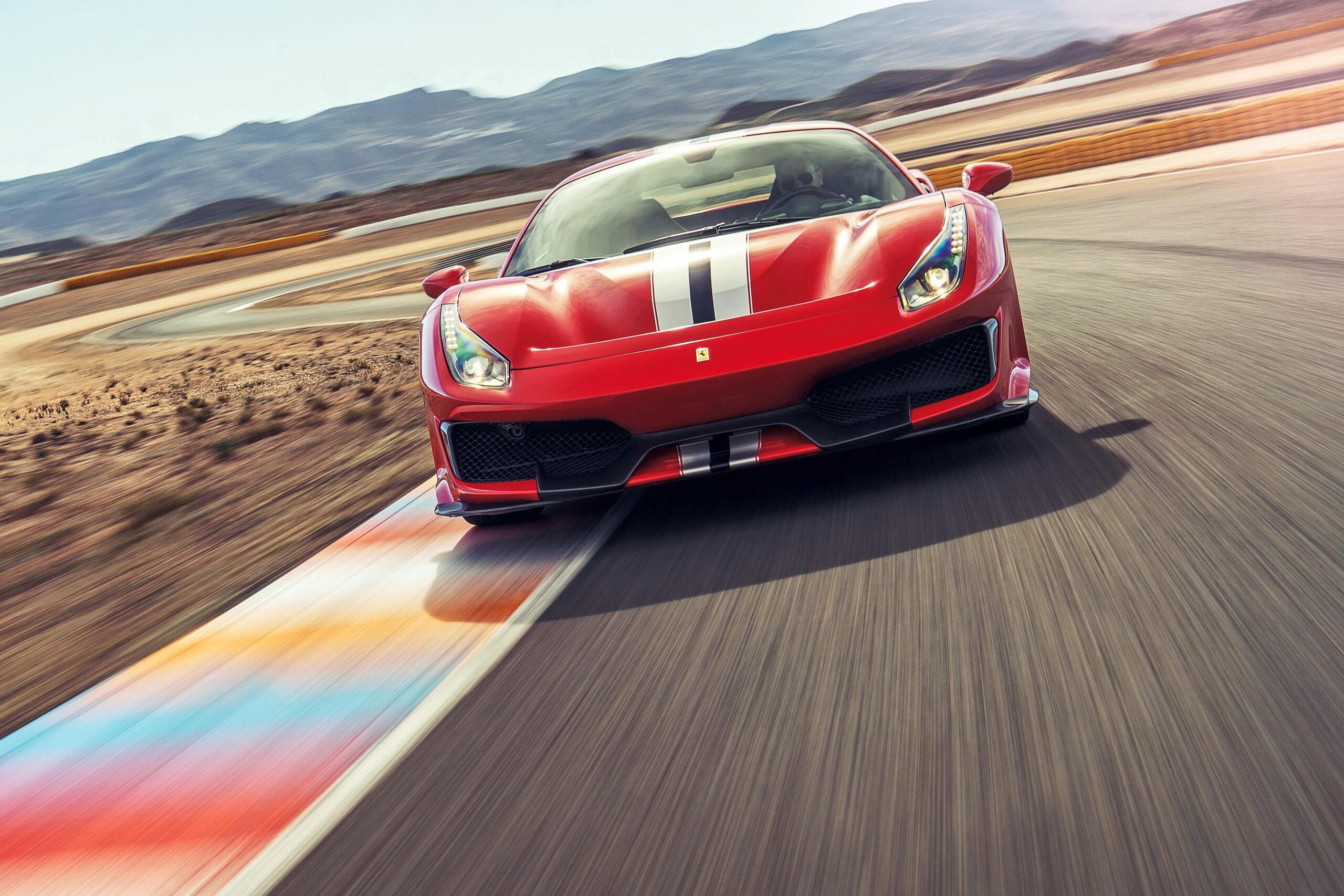
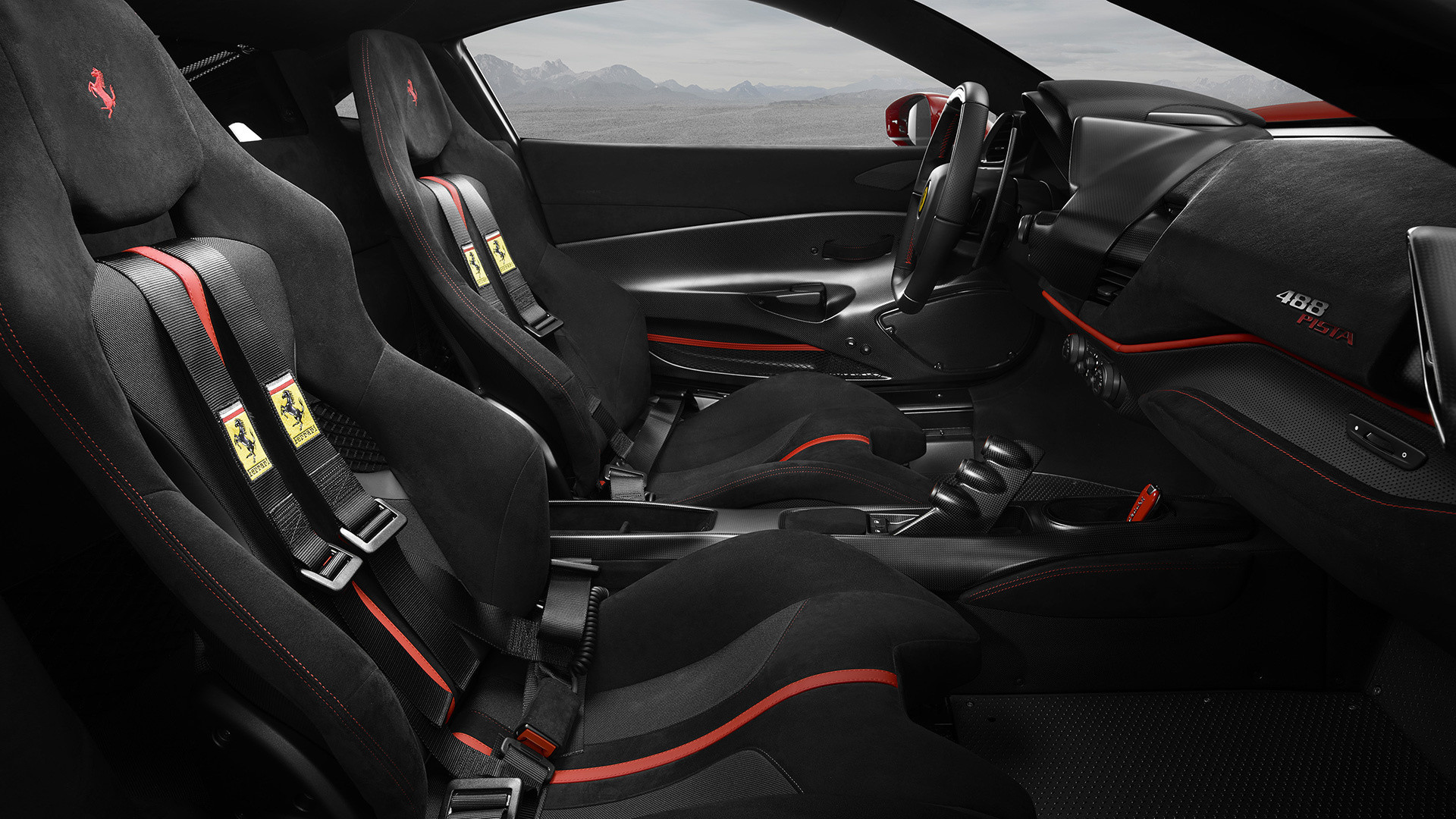
The 488 Pista introduced turbocharging – and the biggest power increase between generations with 720 cv
2018: 488 Pista
The 488 Pista introduced turbocharging to the special-series recipe in 2018, pushing power to 720 cv – a figure that didn’t merely represent the biggest ever increase between generations, it made the 488 Pista the most powerful road-going V8 engine in Ferrari history.
Torque delivery was perhaps even more transformative, with 770Nm on tap from just 3000rpm – far exceeding the Speciale’s 540Nm at 6000rpm. And yet sophisticated management of torque delivery ensured this vast performance was delivered progressively to the rear wheels – not only making the Pista spectacularly exploitable, but also preserving much of the feel of a naturally aspirated engine as it soared to 8000rpm.
The rules-restricted performance of the 488 Challenge and GT3 racecars was actually inferior to the road car, but lessons from motorsport chassis and aerodynamic development still proved vital. A new rear diffuser and front flicks were both derived from the 488 GTE, for example. Even innovations first seen in Formula One found their way onto the Pista, most notably the S-Duct that channels air into the Pista’s front bumper and out through its sculpted bonnet to generate vertical load.
A new generation of the Side Slip Control System and Michelin Cup 2 tyre offered with 20-inch carbonfibre wheels underlined the advances – the latter contributing to a dramatic 90kg weight saving.
The 488 Pista and its Spider sibling close the chapter on the special-series V8s, as race grids now fill with a new generation of V6-powered 296 GT3 racing cars.
Report by Ben Barry for ferrari.com

